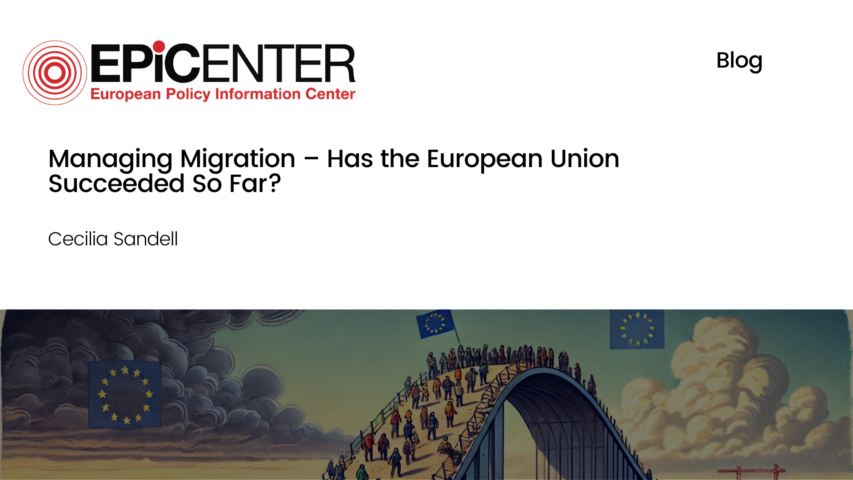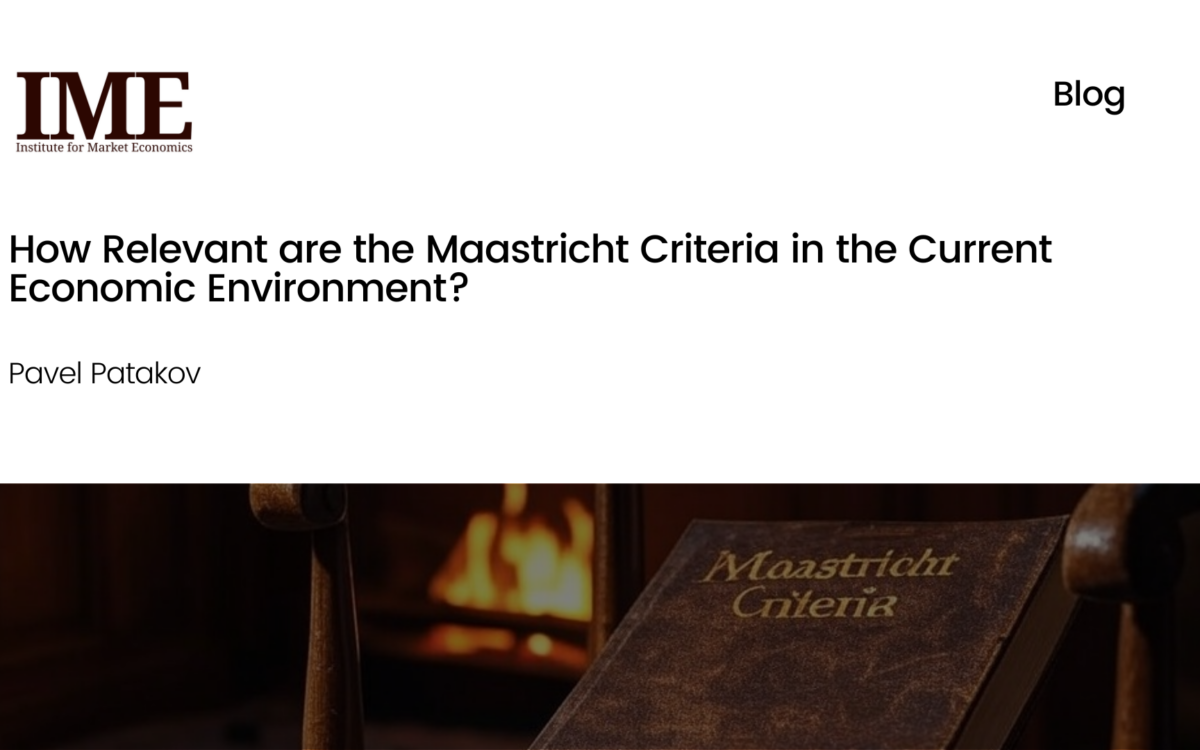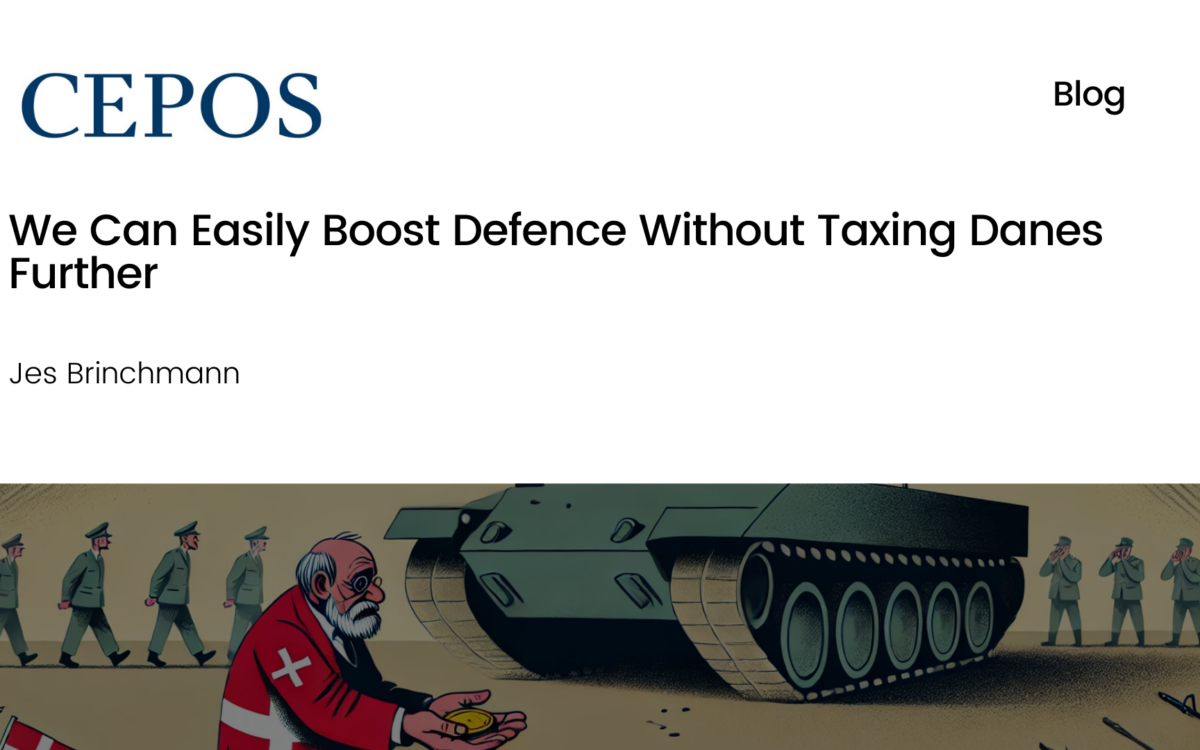Managing Migration – Has the European Union Succeeded So Far?

Managing Migration – Has the European Union Succeeded So Far?
Cecilia Sandell // 26 June 2017
In 2015, Europeans were horrified by the chaos that unfolded in the Mediterranean Sea and shocked by how unprepared their national governments were to handle the large stream of migrants that followed. Since then, the European Union has taken a number of measures to stabilise migration flows and to better manage the Union´s external borders.
In March 2016, the EU-Turkey Statement was implemented. The joint action-plan stated that “irregular migrants” entering Greece from Turkey would be returned and that for each Syrian migrant returned to Turkey, a Syrian migrant would be relocated in the EU. In October 2016, the newly formed European Border and Coast Guard Agency (EBCG) launched its management and cross-border crime prevention initiative all across the Mediterranean Sea. Currently, there are around 1,700 guards deployed at the borders of Greece, Bulgaria, Italy, Spain and the Western Balkans. More guards are expected to be available by the end of October. On top of this, systematic checks across the EU external borders are now in operation.
So far, all these efforts have proven to be effective. According to the UN Refugee Agency, the number of migrants arriving via sea has decreased, with the total number of arrivals being around one million in 2015 compared to about 360,000 in 2016. This downward trend has certainly continued during the first half of 2017, with the number of arrivals between January-June being around 82,800.
Nevertheless, the Union´s means to achieve this noble end have been questioned by many. In particular, the EU-Turkey Statement has been heavily scrutinised and has received strong criticism, predominately from human rights organisations, which argue that this deal puts the very principle of seeking refuge at risk. Moreover, the extensive re-settlement programme has caused disagreement amongst EU governments. As widely reported by the media, some eastern-European countries such as Hungary and Poland, are all refusing to accept the relocation and re-settlement of any refugee. This controversial decision forced the European Commission to take action and to start formal infringement proceedings on 13 June. These cooperation problems have not only led to slow progress in the relocation of some 160,000 refugees but they also have created deep political tension between EU leaders. According to the latest European Commission relocation and re-settlement bulletin, published on June 13, Slovakia, Czech Republic, Croatia and Bulgaria granted refugee status to a total of only 129 asylum seekers.
With summer approaching, the number of migrants making their way to Europe is likely to increase during the coming months – in fact, an increase of 10,000 arrivals can already be seen between April and May. With this in mind, the European Parliament Conference on Migration Management was held 21 June. The conference´s key message was shared responsibility and solidarity, and the European Parliament President, Antonio Tajani, stressed the unfairness of a few smaller countries taking the majority of the responsibility in distribution of migrants. However, the roots of the problems were also discussed, with promises of large-scale investments in both Africa and the Middle East.
Although the conference demonstrates the willingness of European policy-makers to fix the ongoing migration crisis, the question is what events like this will be able to achieve in the long-run. Will the EU-Turkey agreement stand? Will member states start sharing responsibility? Will the roots of the migration problems be dealt with?
Perhaps, an even greater question is how this long-lasting migration emergency will affect
the Union´s internal borders. With fences being built and temporary borders controls reintroduced, the 1985 Schengen Agreement is in peril. For example, following the Council´s latest recommendations, Germany, Austria, Denmark, Norway and Sweden have all temporarily reintroduced borders checks until mid-November.
All in all, one thing is clear: two years on, migration flows continue to be one of Europe’s greatest challenges and without a more effective and coordinated response, previous efforts are probably doomed to fail. At the same time, the worrying rise of anti-migrants’ and nationalist-authoritarian parties is likely to continue.
EPICENTER publications and contributions from our member think tanks are designed to promote the discussion of economic issues and the role of markets in solving economic and social problems. As with all EPICENTER publications, the views expressed here are those of the author and not EPICENTER or its member think tanks (which have no corporate view).



